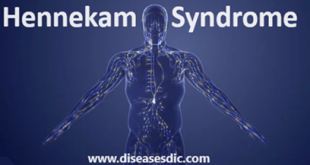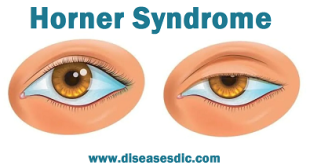Definition
Herpes is an infection caused by HSV (herpes simplex virus). This virus affects the external genitalia, anal region, mucosal surfaces, and skin in other parts of the body. Herpes is a long-term condition. However, many people never have symptoms even though they are carrying the virus. The herpes simplex virus, also known as HSV, is an infection that causes herpes.
Structure of Herpes simplex virus
Types of Herpes
There are two types of the herpes simplex virus.
- HSV-1: Also known as oral herpes, this type can cause cold sores and fever blisters around the mouth and on the face.
- HSV-2: This type is generally responsible for genital herpes outbreaks.
Stages of Herpes infection
Primary stage
This stage usually starts 2 to 8 days after you’re infected, but it can take much longer to begin. Usually, the infection causes groups of small, painful blisters. The fluid in the blisters may be clear or cloudy. The area under the blisters will be red. The blisters break open so easily that they quickly become open sores. You may not ever notice the blisters.
Besides having tender blisters or sores in your genital area, it may hurt to urinate. You may run a fever, feel achy and have other flu-like symptoms.
While most people have a painful primary stage of infection, some don’t have any symptoms at all, and may not even know they’re infected.
Latent stage
During this stage, there are no blisters, sores or other symptoms. At this time, the virus is traveling from your skin into the nerves near your spine.
Shedding stage
In the shedding stage, the virus starts multiplying in the nerve endings. If the affected nerve endings are in areas of the body that make or are in contact with body fluids, the virus can get into those body fluids (such as saliva, semen or vaginal fluids). There are no symptoms during this stage, but the virus can be spread during this time.
Historical Information
The origin of herpes in human history is unknown but the Herpes Simplex was first documented by ancient Greeks as sores that seem to “creep” over the surfaces of skin. Vidal, 1873, first demonstrated the Herpes Simplex Virus to be infections caused by human inoculation.
There is also evident speculation around two thousand years ago the Roman Emperor Tiberius attempted to curb an epidemic of herpes from the mouth by outlawing kissing during public ceremonies and rituals
Prevalence of HSV- 1 and HSV- 2
HSV-1 Prevalence
- HSV-1 infection is very common. The World Health Organization estimates that 67 percent of all people in the world younger than 50 have HSV-1.
- In the United States, an estimated 54 percent of people between the ages of 14 and 49 have HSV-1.
- Most people with HSV-1 become infected during childhood or adolescence.
- Not everyone with HSV-1 gets cold sores or has symptoms. Many people with the virus don’t even know they’re infected.
HSV-2 Prevalence
HSV-2 is one of the most prevalent infections in the world. It is estimated that, in the United States, 40-60 million people are infected, with an incidence of 1-2 million infections and 600,000-800,000 new cases per year. The latest HSV-2 data published by the Centers for Disease Control and Prevention (CDC) at the National Sexually Transmitted Diseases Conference in 2010 in Atlanta indicated that the prevalence of HSV-2 is still high (16.2%), especially among black women, where rates may be as high as 48%.
Global prevalence is higher in women compared to men, especially among young people8. There is a six times greater chance of herpes transmission from men to women compared with transmission from women to men. In developed countries, where the acquisition of HSV-1 in childhood has been reduced, HSV-2 seroprevalence has increased, suggesting a possible protective effect of HSV-1 against acquisition of HSV-2.
Causes of herpes
When HSV is present on the surface of the skin of an infected person, it can easily be passed on to someone else through the moist skin that lines the mouth, anus, and genitals. The virus may also spread to another individual through other areas of skin, as well as the eyes.
A human cannot become infected with HSV by touching an object, work surface, washbasin, or towel that has been touched by an infected person. Infection can occur in the following ways:
- Having unprotected vaginal or anal sex
- Having oral sex with a person who gets cold sores
- Sharing sex toys
- Having genital contact with an infected person
The virus is most likely to be passed on just before the blister appears, when it is visible, and until the blister is completely healed. HSV can still be transmitted to another person when there are no signs of an outbreak, although it is less likely.
If a mother with genital herpes has sores while giving birth, it is possible that the infection will be passed on to the baby.
Who is at risk of developing herpes simplex infections?
Anyone can be infected with HSV, regardless of age. Your risk is based almost entirely on exposure to the infection.
In cases of sexually transmitted HSV, people are more at risk when they participate in risky sexual behavior without the use of protection, such as condoms. Other risk factors for HSV-2 include:
- Having multiple sex partners
- Having sex at a younger age
- Being female
- Having another sexually transmitted infection (STI)
- Having a weakened immune system
If a pregnant woman is having an outbreak of genital herpes at the time of childbirth, it can expose the baby to both types of HSV, and may put them at risk for serious complications.
Signs and Symptoms of herpes simplex
It is important to understand that someone may not have visible sores or symptoms and still be infected by the virus. And they may transmit the virus to others.
Some of the symptoms associated with this virus include:
- Blistering sores (in the mouth or on the genitals)
- Pain during urination (genital herpes)
- Itching
You may also experience symptoms that are similar to the flu. These symptoms can include:
- Fever
- Swollen lymph nodes
- Headaches
- Tiredness
- Lack of appetite
HSV can also spread to the eyes, causing a condition called herpes keratitis. This can cause symptoms such as eye pain, discharge, and a gritty feeling in the eye.
Complications
Herpes simplex in any patient with a seriously compromised immune system can cause serious and even life-threatening complications, including:
- Pneumonia
- Inflammation of the esophagus
- Encephalitis (inflammation of the brain)
- Destruction of the adrenal glands
- Disseminated herpes (spread of infection throughout the body)
- Liver damage, including hepatitis
- Urinary retention in women, especially with the first outbreak, is not uncommon. Some women need to use an indwelling catheter for a few days to a week.
Potential effects of herpes in the newborn
Herpes infection in a newborn can cause a range of symptoms, including skin rash, fevers, mouth sores, and eye infections.
If left untreated, neonatal herpes is a very serious and even life-threatening condition.
Neonatal herpes can spread to the brain and central nervous system causing encephalitis and meningitis and leading to mental retardation, cerebral palsy, and death. Herpes can also spread to internal organs, such as the liver and lungs.
Infants infected with herpes are treated with acyclovir. It is important to treat babies quickly, before the infection spreads to the brain and other organs.
Diagnosis
- Testing of a sample taken from the sore
- If doctors suspect a brain infection, magnetic resonance imaging and a spinal tap
- HSV infection is usually easy for doctors to recognize. If unsure, doctors may use a swab to take a sample of material from the sore and send the swab to a laboratory to grow (culture) and identify the virus.
- Sometimes doctors examine material scraped from the blisters under a microscope. Although the virus itself cannot be seen, scrapings sometimes contain enlarged infected cells (giant cells) that are characteristic of infection by a herpes-type virus.
- Blood tests to identify antibodies to HSV can also be helpful. Certain blood tests can distinguish between HSV-1 infection and HSV-2 infection.
- If a brain infection is suspected, magnetic resonance imaging (MRI) of the brain and a spinal tap (lumbar puncture) to obtain a sample of cerebrospinal fluid may be done.
What are the treatments for herpes?
There are a variety of treatment options. These include:
Home remedies
- Lightly salted baths can help alleviate the symptoms of herpes.
- Lightly salted baths can help alleviate the symptoms of herpes.
- Several home remedies can help, including:
- Taking painkillers, such as acetaminophen or ibuprofen
- Bathing in lightly salted water helps relieve symptoms
- Soaking in a warm sitz bath
- Applying petroleum jelly to the affected area
- Avoiding tight clothing around the affected area
- Washing hands thoroughly, especially after touching the affected area
- Refraining from sexual activity until symptoms have gone
- If urinating is painful, apply some cream or lotion to the urethra, for example, lidocaine
- Some people find that using ice packs can help. Never apply ice directly to the skin, always wrap it in a cloth or towel first.
Medication
- No drug can get rid of the herpes virus. Doctors may prescribe an antiviral, such as acyclovir, which prevents the virus from multiplying. Antiviral medications will help the outbreak clear up faster and will also help reduce the severity of symptoms.
- Doctors usually prescribe antivirals the first time a person has symptoms. As recurrent outbreaks are usually mild, treatment is not usually necessary.
Episodic treatment and suppressive treatment
Episodic treatment is generally for people who have less than six recurrences in 1 year. Doctors may prescribe a 5-day course of antivirals each time symptoms appear.
Doctors prescribe suppressive treatment if a person experiences more than six recurrences in a year. In some cases, a doctor my recommend that the individual takes daily antiviral treatment indefinitely. The aim here is to prevent further recurrences. Although suppressive treatment significantly reduces the risk of passing HSV to a partner, there is still a risk.
Other treatments
- For people who have minimal discomfort, the only treatment needed for recurring herpes of the lips or genitals is to keep the infected area clean by gentle washing with soap and water.
- Applying ice may be soothing and reduce swelling.
- Applying prescription or nonprescription topical anesthetics, such as tetracaine cream or benzocaine ointment, may help relieve pain.
- If the mouth contains many sores, the mouth can be rinsed with lidocaine, which should not be swallowed.
- Topical anesthetics should be used only about once every few hours. If used more often, these drugs can have harmful side effects.
- Pain relievers may be taken for pain.
Prevention
- People should avoid activities and foods known to trigger recurrences. For example, they people with oral HSV infection should avoid exposure to sunlight as much as possible.
- Because HSV infection is contagious, people with infection of the lips should avoid kissing as soon as they feel the first tingling (or, if no tingling is felt, when a blister appears) until the sore has completely healed. They should not share a drinking glass and, if possible, should not touch their lips. They should also avoid oral sex.
- People with genital herpes should use condoms at all times. Even when there are no visible blisters and no symptoms, the virus may be present on the genitals and can be spread to sex partners.
- Vaccines for the prevention of HSV infections are being developed
- Talk with your doctor about taking herpes medication every day, which can lower your chances of spreading herpes.
- Don’t have sex during a herpes outbreak, even with a condom. There may be sores on places the condom doesn’t cover.
- Talk with your doctor about taking herpes medication every day, which can lower your chances of spreading herpes.
- Don’t have sex during a herpes outbreak, even with a condom. There may be sores on places the condom doesn’t cover.
 Diseases Treatments Dictionary This is complete solution to read all diseases treatments Which covers Prevention, Causes, Symptoms, Medical Terms, Drugs, Prescription, Natural Remedies with cures and Treatments. Most of the common diseases were listed in names, split with categories.
Diseases Treatments Dictionary This is complete solution to read all diseases treatments Which covers Prevention, Causes, Symptoms, Medical Terms, Drugs, Prescription, Natural Remedies with cures and Treatments. Most of the common diseases were listed in names, split with categories.








please am seeing the blistering on my genitals please what should I do?
It can be symptoms of herpes or any bacterial infections. Please consult with a doctor to avoid spreading and difficulties.
how do u know if a female sex partner has dis virus? i have just one sex partner but am sure she does have some guy s i caught her on two different occssions. i hav those blisters but she doesnt does it mean the symtoms delay in women than men?
If your partner is affected with herpes definitely it will pass on to you. So have protected sex and please consult with a doctor to escape from this.
Please am suffering from the HSV-2. which volume should I buy I mean the acyclovir ?
200 mg (one 200 mg tablet or one teaspoonful of suspension [5 mL]) every 4 hours, 5 times daily for a total of 1 g daily for 10 days. Therapy should be initiated as early as possible following onset of signs and symptoms. Before initiating the treatment consult with a doctor.
what are the symptoms of hpvs2
In women, blisters may appear on the: Vagina, Vulva (external parts of the genitals including the vaginal lips and clitoris), Buttocks, Anus, and Thighs. Some women experience an unusual vaginal discharge.
In men, blisters often appear on the: Penis, Scrotum,Anus, Buttocks, and Thighs.
l had herpes infection. l was given Doxy 200g ,1 caplet per day for 20 days . presently the blisters around the penis has stopped but I am still having blisters in the mouth.pls what can l do?
consult a doctor.
Please I use salty water to bath and my blister has disappeared without taken any medicine can I have any problem with that?
I spoke to my doctor who gave me injections for over a week. plus drugs and I feel no different what do I do its uncomfortable… bathing with salty water is there like an amount I should add to the water? way I feel I may just put a bag in
It depends on the volume of water you take for bathing.
I want to know if only herpes virus can cause blisters on the panis or there are others virus.
There are also some bacteria and viruses which can cause blisters.
last year,I was feeling some pains ,and immediately I visit my doctor,and immediately I showed him the blisters ,he told me its genital herpes,without running a test for me,I had the blisters 5 times after,but disappear itself,then I took acyloclovir ,and I dnt see it again ,my question is could it be genital herpes ?and moreso is it deadly if drugs is not taken .. like how many years can it stay. thanks
Please consult about this with any other physician.
suggest ointment for genital warts
Imiquimod (Aldara, Zyclara). This cream appears to boost your immune system’s ability to fight genital warts.
Podophyllin and podofilox (Condylox).
Trichloroacetic acid (TCA).
Sinecatechins (Veregen).
can a pregnant woman take acyclovior?
taking certain acyclovir for herpes infections during the first three months of pregnancy does not increase a child’s risk of major birth defects,
Does HSV heal totally! or for that matter can it not present clinical manifestation or damage internal organs
It cannot be cured totally. for clinical manifestation please look into the post.
Good work keep it up. What’s the actual dose for herpes?
2 g orally every 12 hours for a total of 2 doses (4 g)
Therapy should be started at the earliest sign of a cold sore (such as tingling, burning, or itching).
Genital herpes:
First episode: 1 g orally twice a day for 7 to 10 days
Recurrent episode: 500 mg orally twice a day for 3 days
please there is this bad odour there what should I do
Please always keep clean with antibiotics solutions.
im having this genital herpes and is causing bad scent there what should I do please
please consult with a doctor.
am having itching rashes on my thigh, genitals and back for more than a month i did STD test and my doctor didn’t not confirm any present infection pls what could be other related cause to this infection?
It might be due to any fungal infections But kindly consult a doctor once to get diagnosed.
if herpes does not stop reoccurring what is the step
Wash any items that may have had contact with the infected sores, like towels, in boiling water after use.
Don’t share food utensils or other personal items with people who have oral herpes.
Don’t share cold sore creams with anyone.
Don’t kiss or participate in oral sex with someone who has cold sores.
how is it possible that im having outbreak once or twice a month hsv2 do i need to take every day like maintaintenance meds acyclovir for lifetime? if im having outbreaks then thats the time i drink acyclovir for three days and it is totaly gone and what doctor is specialist for herpes that could inject me or explain for more further for preventing having it as always. TIA.
It’s a simple disease you can visit a General Physician or a Dermatologist
I had suffering from small pimples oh the head penice painless what someone explain to me here
Please consult a doctor asap.
I have several blisters in my armpit. Could this be herpes ?
Please diagnose the problem as early as possible.
I have blisters on my genital as often as 12times a year especially when I’m about to menstruate and I’ve done test for HSV1 / 2 and it came out negative. what can be the problem here?
For better diagnosis and consultation please consult a doctor.
how can I cure genital herpes
Please read more about Genital herpes at https://diseasesdic.com/genital-warts-causes-diagnosis-and-prevention/
it is safe to take vaccine in herpes or shinglesplz tell me it’s very import
Vaccine is very much appreciated to get rid of the herpes.
I’ve been itching around my anus for almost 6months now. what to do for it, and could it be herpes or bacterial infection?
If anal itch becomes a chronic (long-term) problem, the skin around the anus may become raw and tender from repeated scratching, or it may thicken and become leathery. Repeated scratching also can cause breaks in the anal skin that can lead to painful local infections.
Note: We advice you to consult a doctor for appropriate diagnosis and treatment option.